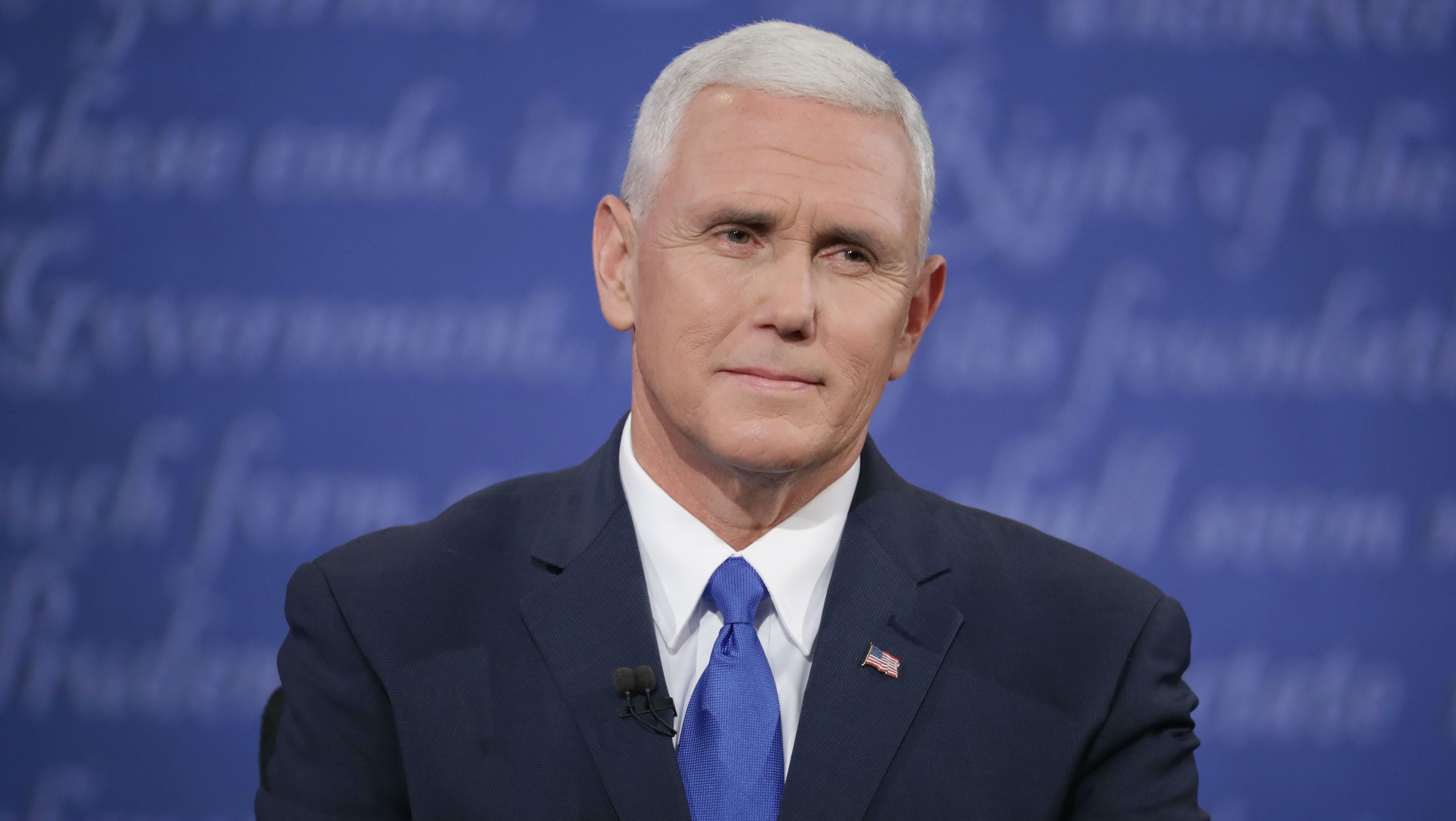US suggests North Korean talks without preconditions
Pence says ‘maximum pressure’ campaign will intensify ‘but if you want to talk, we’ll talk’

A free daily email with the biggest news stories of the day – and the best features from TheWeek.com
You are now subscribed
Your newsletter sign-up was successful
US Vice President Mike Pence says the Trump administration may be willing to enter into a dialogue with North Korea without any preconditions.
Speaking to The Washington Post yesterday during his flight home from the PyeongChang Winter Olympics, Pence also said unconditional talks were “something experts have long urged the administration to do”.
US Secretary of State Rex Tillerson sounded a note of caution today, however. Tillerson told reporters that it is up to Pyongyang to decide when it is ready for sincere talks, and that it is too early to determine whether this is the start of a diplomatic process, Reuters reports.
The Week
Escape your echo chamber. Get the facts behind the news, plus analysis from multiple perspectives.

Sign up for The Week's Free Newsletters
From our morning news briefing to a weekly Good News Newsletter, get the best of The Week delivered directly to your inbox.
From our morning news briefing to a weekly Good News Newsletter, get the best of The Week delivered directly to your inbox.
It is not the first time the White House has issued mixed messages about North Korea. In December, Tillerson made similar comments about dialogue without preconditions, only to have White House officials contradict him, the Financial Times says.
Until now, the Trump administration had followed a strategy of “maximum pressure”, Business Insider explains, “whereby the US and its allies use all possible tools to make life hard on North Korea, forcing them to agree to denuclearise and agree to talks”.
Pence’s comments follow an invitation from North Korean leader Kim Jong Un to South Korean leader Moon Jae-in to visit Pyongyang for a summit.
A free daily email with the biggest news stories of the day – and the best features from TheWeek.com
-
 5 thoroughly redacted cartoons about Pam Bondi protecting predators
5 thoroughly redacted cartoons about Pam Bondi protecting predatorsCartoons Artists take on the real victim, types of protection, and more
-
 Palestine Action and the trouble with defining terrorism
Palestine Action and the trouble with defining terrorismIn the Spotlight The issues with proscribing the group ‘became apparent as soon as the police began putting it into practice’
-
 Why is the Trump administration talking about ‘Western civilization’?
Why is the Trump administration talking about ‘Western civilization’?Talking Points Rubio says Europe, US bonded by religion and ancestry
-
 Ex-South Korean leader gets life sentence for insurrection
Ex-South Korean leader gets life sentence for insurrectionSpeed Read South Korean President Yoon Suk Yeol was sentenced to life in prison over his declaration of martial law in 2024
-
 Epstein files topple law CEO, roil UK government
Epstein files topple law CEO, roil UK governmentSpeed Read Peter Mandelson, Britain’s former ambassador to the US, is caught up in the scandal
-
 Iran and US prepare to meet after skirmishes
Iran and US prepare to meet after skirmishesSpeed Read The incident comes amid heightened tensions in the Middle East
-
 Israel retrieves final hostage’s body from Gaza
Israel retrieves final hostage’s body from GazaSpeed Read The 24-year-old police officer was killed during the initial Hamas attack
-
 China’s Xi targets top general in growing purge
China’s Xi targets top general in growing purgeSpeed Read Zhang Youxia is being investigated over ‘grave violations’ of the law
-
 Panama and Canada are negotiating over a crucial copper mine
Panama and Canada are negotiating over a crucial copper mineIn the Spotlight Panama is set to make a final decision on the mine this summer
-
 Why Greenland’s natural resources are nearly impossible to mine
Why Greenland’s natural resources are nearly impossible to mineThe Explainer The country’s natural landscape makes the task extremely difficult
-
 Iran cuts internet as protests escalate
Iran cuts internet as protests escalateSpeed Reada Government buildings across the country have been set on fire